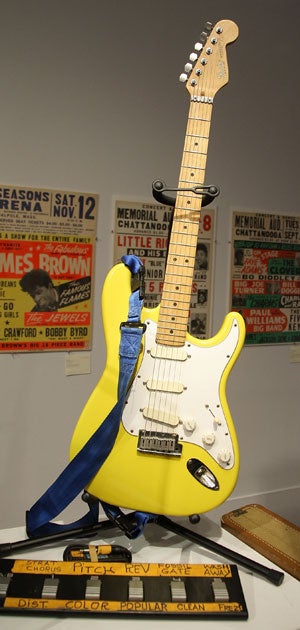Music

What courses? Music; audio and music technology; commercial music; creative music technology; digital music and sound arts; film music and soundtrack production; jazz and popular music; music business; musical composition; music education; music journalism; music management; musical performance; music production; music technology; musical theatre; popular music; popular music performance; popular music production; sound and multimedia technology; sound engineering and production;
What do you come out with? BMus, BA or a BSc. Scottish universities offer a MA.
Why do it? “A musician must be self-motivated, yet able to work as part of a team; self-disciplined, yet infinitely flexible; perfectionist, yet pragmatic. They must be able to listen and to react appropriately and instantaneously. They must be able to follow direction, while still expressing their individuality. They must be punctual, present themselves confidently and market themselves effectively. And they must be able to deliver the goods at the moment when they are needed - not an hour later, when everyone else has gone home. As a music student, you will learn to do all this and more. What other subject teaches you all these life-skills, while simultaneously giving pleasure?” - John Pickard, professor of composition and applied musicology, the University of Bristol.
What's it about? You can choose from a vast range of options, from classical performance to running a recording studio. Core subjects include composition, musical theory, the history of music, performance and musical analysis. Few universities will offer students the possibility of focussing on their main instrument but some will give you the option to spend time on another main instrument as well. Music technology is an increasingly popular degree and can be studied on its own, covering areas such as innovation, multimedia, studio engineering, recording techniques and media electronics. Students of the BMus are often able to opt for elements of the technology course, such as units in editing techniques. As a conservatoire, the RAM has a more traditional course, teaching performance to a professional level and offering associated academic units on topics such as the technical side of music, performance practice and Western music history. It will also give students the opportunity of specialise in the third and fourth years, after two years in common.
Study options: Courses are usually three years, sometimes four, such as at the Royal College of Music. Four in Scotland. Some universities offer a sandwich year out in the music industry. Assessment is usually via a range of practical tests (including performance) and coursework. At Manchester students have the opportunity to choose to present a formal recital for assessment on their instrument. At the Royal Academy of Music you will have mainly practical exams. Many course use a mixture of coursework, including essays, portfolios and seminar presentations, and end-of-module examinations.
What will I need to do it? Usually A-level music as well as grade 8 in your primary study instrument. Grade-wise, it varies from university to university. For straight music, Bristol wants AAB – BBB; Cambridge A*AA; Oxford AAA; East Anglia and Edinburgh ask for BBB. Many courses require interviews or auditions. The Royal Academy of Music for example will give an audition where you will be asked to prove your level on a specific instrument and potential as professional musician.
What are my job prospects? Good, which is quite surprising for an arts subject. The Royal College of Music, the Royal Academy of Music and the Royal Scottish Academy of Music and Drama topped the Complete University Guide 2012 for graduate prospects, closely followed by Birmingham and the Royal Northern College of Music. Most graduates continue with music in a performance, teaching, conducting or arts administrative capacity. Music production is a massive industry so proper sound technologists are in demand for TV, theatre, pop and classical industries. Expect an average starting salary of £17,000.
Where's best to do it? The Complete University Guide 2012 states that this year’s top three are Oxford, Cambridge and Bristol. Students at Bristol, Sussex and Newcastle were the most satisfied.
Related courses: Drama, dance and performing arts.
Join our commenting forum
Join thought-provoking conversations, follow other Independent readers and see their replies
Comments
Bookmark popover
Removed from bookmarks